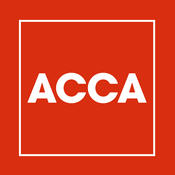ACCA report calls for fraud vigilance amongst accountants

Accountants need to keep up their guard when taking on new clients and make sure anti-fraud checks are rigorous enough to combat a potential increase in criminal activity driven by the global pandemic, according to a new report from the Association of Chartered Certified Accountants (ACCA)
ACCA has warned finance professionals against over-confidence in trusting their ‘gut feel’ about clients and strongly recommends they consider if digital technology checks could help.
However, accountants who contributed to the survey have reservations about digital tools that aim to verify identities and check the financial records of prospective new clients and believe they are too expensive and not relevant for smaller practices.
Only 49% of respondents ran any form of online checks on new clients – preferring to verify passport and other identity details using traditional paper methods. The report showed that 65% still relied on manual record-keeping of physical documents.
The report discovered that sole trader accountancy businesses in particular regarded anti-fraud checks as ‘box-ticking’ exercises. They preferred to go with their instinct on judging new clients’ good character and to rely on recommendations from other clients and contacts.
Jason Piper, head of taxation at ACCA and author of the report Know Your Customer: Is it time to digitalise the first line of defence? surveyed 278 accountants for the small report, mainly in the UK, but with input from around the world.
He said: “For verification of identity, with so much business now operating on the basis of formal regulated frameworks rather than personal recommendation, is there a case to be made for accountants likewise to rely more on tools than intuition?
“For the vast majority of every accountant’s client base the global economic downturn consequent upon the Covid-19 pandemic will have increased the risk of non-compliance one way or another.
“As businesses struggle to survive and cash flow is squeezed, the temptation to cut corners or take advantage of some ‘too good to be true’ opportunity will increase.
“Clients who two years ago might never have considered any unlawful activity may now present a significant risk of involvement in money laundering, whether wittingly or otherwise.”
The report warned finance professionals that their role meant they were close to the flow of money and that ‘a single bad client can destroy the practice’.
The author also drew on a recent study by the Central Council of Accounting Bodies (CCAB), which found that the majority of accountants did not believe the required economic checks were proportionate to the risk of fraud.
Anecdotal evidence in the new report indicated that the profession believes that the risk of them becoming entangled with criminal activity is low and they understand the checks are important, but do not rate them a high priority for their businesses.
The study explained that smaller practices relied heavily on their perceptions and personal recommendations, but added: ‘Perhaps the most significant risk comes from the over-confident accountant who assumes themselves to be capable of assessments which are not realistically within their ability.’
The survey concludes that some accountants could derive real benefits from online anti-fraud tools and that software producers and regulators must work together to ensure the technology is affordable and globally available.









